TRICARE is a popular health insurance provider for members of the United States Armed Services. Coverage is available for uniformed service members and their families, National Guard and Reserve members, former military spouses, survivors and others who are registered with the Defense Enrollment Eligibility Reporting System. TRICARE covers services for various substance use disorder treatments and rehabs across the country, including Lilac Recovery Center in San Diego and Valley Center. Read on to lean more about TRICARE rehab coverage.
Understanding TRICARE’s Coverage for Alcohol and Drug Rehab
People often have questions about whether their insurance plans cover the cost of rehab. The Affordable Care Act mandates that health insurance companies must provide some degree of coverage for mental health treatment, and substance use disorders are classified as mental health issues.
For those covered by TRICARE, this is good news, as the program does offer coverage for a wide range of addiction treatment services including detox, stabilization, medication assisted therapy and other treatments. However, plans vary within TRICARE, so some out-of-pocket expenses may be incurred.
TRICARE health insurance may cover various substance abuse issues, including addictions to alcohol, heroin, cocaine, opioids, stimulants, and prescription drugs.
Mental Health Services Under TRICARE
Mental health is a crucial aspect of overall wellness, and TRICARE understands this, offering coverage for a range of mental health conditions. From anxiety and depression to Post-Traumatic Stress Disorder (PTSD) and other mental illnesses, TRICARE insurance provides support for service members battling these conditions. This support extends to a variety of mental health services, including:
- One-on-one therapy sessions
- Counseling appointments
- Marriage and family counseling
- Group therapy
TRICARE, a component of the Defense Health Agency, is committed to providing comprehensive mental health services through the collaboration with the Mental Health Services Administration.
TRICARE also provides assistance for both emergency and non-emergency mental health care for beneficiaries. However, it’s important to note that the costs associated with mental health care can vary depending on the specific TRICARE plan and the circumstances of the treatment. Therefore, understanding these cost variables is crucial in managing mental health services effectively.
Exploring Inpatient and Outpatient Rehab Options with TRICARE Insurance
The journey of addiction treatment and recovery isn’t linear, and TRICARE acknowledges this by offering coverage for both inpatient and outpatient rehab settings. This means that whether you need intensive inpatient services or you’re transitioning to outpatient care, TRICARE has coverage options.
Outpatient rehab services under TRICARE allow individuals to live at home or in a sober-living environment while undergoing treatment, offering a more flexible approach to recovery. However, it’s important to note that rehab therapy coverage through TRICARE requires that the therapy be rendered by an authorized provider and be necessary to establish a safe and effective maintenance program related to a specific medical condition.
The Scope of TRICARE Inpatient Rehab Coverage
Inpatient rehab services provide a concentrated, structured environment that can be crucial for those in the early stages of recovery. TRICARE provides coverage for inpatient rehab when medically necessary treatments for substance abuse are required, and criteria for inpatient care are met. This includes services offered by residential treatment facilities, encompassing room and board expenses when such care is deemed medically necessary. With TRICARE inpatient rehab coverage, individuals can access the support they need for a successful recovery journey.
However, coverage for inpatient detox and rehab can vary depending on the specific TRICARE plan, with some services requiring prior authorization and recommendations from a healthcare provider. Furthermore, TRICARE covers emergency inpatient hospital services that cater to detox, stabilization, and medical complications related to substance use disorders. Hence, understanding the scope of TRICARE’s inpatient rehab coverage is essential for those seeking such services.
TRICARE and Outpatient Rehab Services
On the other end of the spectrum, TRICARE also provides coverage for outpatient rehab services, allowing patients to live at home or in sober living environments while receiving care. This includes partial hospitalization programs and intensive outpatient programs, providing crucial support for those transitioning from inpatient care or requiring initial intensive outpatient treatment.
Moreover, TRICARE’s coverage extends to various forms of psychotherapy, such as individual therapy, group therapy, and counseling sessions within outpatient rehab. Even experiential therapies, including art and music therapy, may be covered as ancillary treatments, provided they are part of a treatment plan at designated facilities. This comprehensive approach ensures that TRICARE beneficiaries have access to a wide range of outpatient rehab services.
Medication Assisted Treatment (MAT) Services and TRICARE
Medication Assisted Treatment (MAT) is a highly effective approach to helping overcome addiction to alcohol and drugs. Under the supervision of a physician, patients are prescribed medications that can help ease the side effects of detox and can help control cravings, especially in the early stages of recovery.
TRICARE plans may cover MAT if the provider meets federal criteria for prescribing these medications. Typically, people requiring medical monitoring during detoxification and those with opioid use disorder may qualify for MAT coverage.
Accessing Rehab Through TRICARE: Steps to Get Started
Knowing coverage details is one thing, but how exactly can you access rehab services through TRICARE? The process begins with a consultation with your primary care manager (PCM) or a TRICARE authorized provider for a referral to substance use disorder (SUD) treatment. From there, it’s crucial to determine if pre-authorization is required for your specific TRICARE plan. Pre-authorization is a prerequisite before starting rehabilitation services for many beneficiaries, which can be obtained through the PCM or by contacting TRICARE directly.
Once you have the necessary referral and/or pre-authorization, the next step is to choose a TRICARE in-network rehab facility to maximize coverage and minimize out-of-pocket expenses.
Verifying Your TRICARE Benefits with Lilac Recovery Center
Before seeking addiction treatment at Lilac Recovery Center, it’s crucial to verify your TRICARE coverage. This can be done by:
- Contacting a TRICARE representative to understand eligibility requirements and potential out-of-pocket costs
- Calling Lilac Recovery Center at (442)-342-6400.
- Using Lilac Recovery’s online insurance verification form
Managing Costs Not Fully Covered by TRICARE
While TRICARE provides comprehensive coverage for rehab services, there may still be costs that are not fully covered. These could include deductibles, co-pays, or services not included in the coverage. A superbill, a detailed receipt of therapy services, can be submitted to TRICARE for partial reimbursement.
This includes diagnostic codes, the amount paid, and dates of care. By providing a superbill and inquiring about the extent of partial reimbursement available from the insurance company, beneficiaries can manage these remaining costs effectively.
Lilac Recovery Center also offers compassionate financing options to help individuals feel comfortable with any out of pocket expenses they may incur.
Understanding Cost-Sharing and Deductibles
It’s essential to understand the concepts of cost-sharing and deductibles when managing costs with TRICARE. The annual deductible is the amount a plan member must pay out-of-pocket before cost-sharing begins, with specific amounts varying across different TRICARE plans. Cost-sharing means a plan member pays a percentage of the total cost for a covered health care service, which applies to all plans except for active duty service members who are exempt.
Plan specifics, including any co-pays required for addiction treatment services, are detailed in the member’s TRICARE insurance coverage plan. Furthermore, TRICARE provides a yearly ceiling on out-of-pocket expenses for covered services, known as the catastrophic cap, offering financial protection against excessive costs.
Contact Us Today To Learn What Services Are Covered by TRICARE
The addiction treatment specialists at Lilac Recovery Center are prepared to help you with the specifics of your TRICARE health insurance coverage for drug and alcohol detox, mental health therapeutic services and inpatient/outpatient rehab. We also have other compassionate financing options to make luxury treatment accessible to those who seek it, whether they reside in California or another state.
Don’t let fears about the cost of rehab stop you or a loved one from seeking treatment for substance use disorders. Every person deserves a chance to live their lives to the fullest, free from addiction. Reach out to Lilac Recovery Center today to understand your TRICARE policy and the treatments that are covered.



